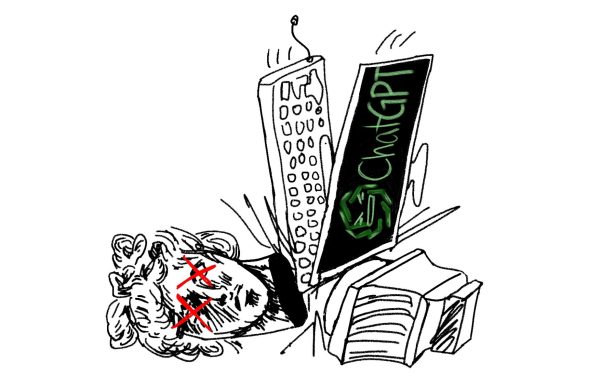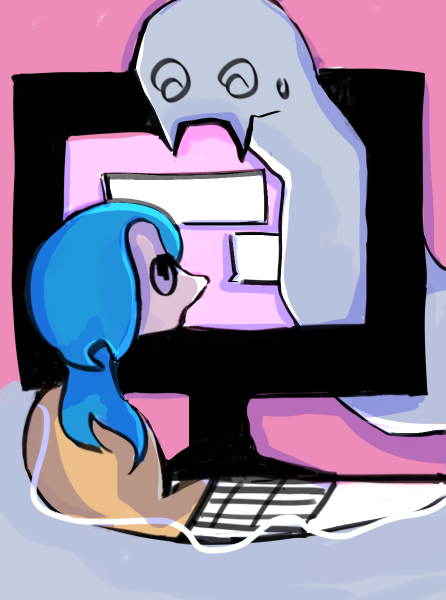The Protestant Work Ethic: Choosing Balance Over Busyness
November 3, 2022
It’s seven hours of school, then tutoring kids, working out, doing homework, practicing piano, cooking dinner, reading The Grapes of Wrath, drafting an essay, learning Italian, and finally, going to sleep. If someone completed those eight things in one day, I would say they were extremely productive; they wasted minimal amounts of their time and energy while getting a lot done.
Yet I wonder, how’s their personal life? How’s their mental and physical health? Are they happy?
We think it’s normal to have 20 items on our to-do list, to gain validation from our work, but our obsession with productivity has not existed for long. In fact, candles were a luxury good until the nineteenth century. Everyone who didn’t have candles to burn adjusted their schedule to the rising and setting of the sun. That meant their days spanned nine to 15 hours—not 18.
Many of us have joined the cult of busyness. It looks attractive: we can easily feel important with all the tasks we “must” get done in a day. However, the illusion lies in how we attain others’ validation while having to give up the one solution we have for being productive and preventing burnout: rest. To sustain the productivity and creativeness that fostered the initial success, we need to practice putting boundaries in place, but it is easier said than done. We feel apprehensive when we have a moment to slow down, because our culture reinforces the same Protestant value of hard work, even with the decline of religion.
The Protestant (or Puritan) work ethic originated from when the Roman Catholic Church taught its believers that a person received salvation through performing good works. In the early 16th century, Martin Luther sparked the Protestant Reformation (leading to Protestantism, the second-largest Christian denomination in the world, and the largest in the U.S.). He argued that salvation was achieved through faith, not one’s actions. However, he taught believers to take pride in their work because people could recognize those who would receive salvation based on their hard work and success. In 1630, these notions crossed the Atlantic Ocean when the Puritans settled in modern-day Boston and established the Massachusetts Bay Colony.
Luther’s teachings would have stayed within the four walls of Protestantism if it weren’t for Max Weber and his book, The Protestant Ethic and the Spirit of Capitalism (1905). Weber asserted that the growth of capitalism and economic success in Northern Europe was due to the Protestant work ethic.
Before industrialization, farmers worked until they earned what they needed and dedicated their extra time to leisure. Because the Protestant work ethic viewed idleness as bad and hard work as virtuous, workers were influenced to work longer hours to do more of “God’s work,” indirectly boosting capitalism. The Protestant work ethic remains in our society despite the decline in Christianity because it has successfully established what people should value most in life—hard work. We see it every day: people show off their unused vacation days, brag about working on weekends, and make sure to tell others just how little sleep they got last night. All for what? Respect and recognition. On the other hand, we fear not being busy because others will look down upon us. Now we justify a lack of work-life balance as having “a good work ethic,” but how much is our choice to be busy driven by the fact that we feel virtuous when we work and guilty when we rest? If we want to maintain our ability to be productive, we must prioritize our health above our work, and having time to destress prevents us from losing our health.
Studies show that overworking and experiencing stress for a long time slows our productivity in the future. The American Institute of Stress states ¾ of doctor visits are prompted by stress-related problems, which isn’t a surprise. Stress can lead to physical problems, like headaches, back pain, and fatigue. It weakens our immune system while increasing the risk of high blood pressure, heart attacks, difficulty sleeping, and diabetes. Above all, stress can lead to us feeling more distracted, irritable, anxious, and depressed.
Allowing our minds to rest is crucial for sustaining a productive routine. Think back to the nights of staying up too late, and the following day, making careless mistakes on a test or struggling to add 5+6. An adequate amount of sleep allows the brain to cleanse itself of the toxins and the neurons to repair themselves from the stress accumulated during the day. Sleep also helps us retain new information because our brains have the time to encode and convert short-term memories into long-term memories.
Additionally, having time to disengage can increase brain activity. Research shows increased blood flow in the brain—which means a more creative brain—when we are idle, compared to focusing on a task. Remember the times when you stepped away from a homework question, took a break, and realized the answer upon returning to your work? Jonathan Schooler, a professor of psychological and brain sciences at UCSB, says these “a-ha!” moments often happen when our minds are allowed to be idle.
Consider this: what’s your end goal? What would you like to accomplish at the end of everything? I hope it’s to not only live through life but to experience life. Hence, we need to view our work more as a means goal; work gives us the stepping stones, the opportunities, self-knowledge, and necessary character building, to accomplish our end goal.
There won’t ever be a “good” time to slow down. We need to intentionally choose balance over busyness every day. It requires effort to walk at a slower pace than what your environment or mind is telling you to, but with consistent practice, you will reap the benefits of having boundaries. It starts by knowing your capacity and saying “no” when taking on another responsibility is at the cost of having a work-life balance. Our work can be sustainable when we have moments to disengage. Whenever we tell ourselves that we don’t have time to rest, remember no external validation can pay for or even be worth our health.

















